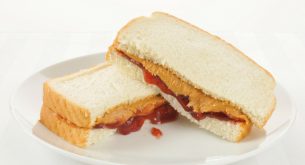A Food-Allergic Teen’s View on Food Bans in Schools
 Year-after-year, as back-to-school approaches, one topic always brings out significant divisiveness in our community: whether or not schools should be “nut-free.”
Year-after-year, as back-to-school approaches, one topic always brings out significant divisiveness in our community: whether or not schools should be “nut-free.”
It is natural, of course, for parents of school-aged children with food allergies to be very passionate about policies that they feel may threaten their child’s safety – whether by inclusion or the lack thereof in these policies! The most important message I can send, however, is for all of us to be open to this discussion and sensitive to the opinions of others, just as we wish those without food allergy issues be sensitive to us. We must be open to compromise that works for all and be understanding that others may have a different, but just as real and valid, perspective than ours.
Common topics for dispute in this discussion involve whether there should be nut-free schools at all, nut-free lunch tables in the cafeteria (or “nut tables” in the cafeteria), the allowance or ban of other allergens in a school, the age at which children should be able to advocate for themselves, school parties involving food, and whether there should be any food in classrooms at all – just to name some.
Food Bans in Schools
I’ve written about the topic of food bans in schools multiple times in the past, the most recent being a post entitled “Nut-Free Schools or Not? Parents Weigh In”. In response to that post, a high school junior wrote a comment about her own experience that really resonated with me. I’m sure McKenzie’s story won’t resolve the debate, but hopefully reading this young woman’s words – a student who has dealt with this issue first-hand – will provoke further introspection for all of us.
Here is what McKenzie had to say:
“I am a junior in high school and have been dealing with anaphylaxis (extremely severe, airborne, contact, etc) to dairy all my life, and although my allergy is not one to nuts, I would like to give my input from the eyes of a child with an allergy.
When I was in elementary school, for the first three years, they had me sit at a table that faced a wall and that was designated previously as one of four “silent lunch” tables where children who misbehaved sat at. I was the only kid in my school that had my allergy and one of the only ones that had an allergy at all. I sat alone and that in itself was hard on me. I felt, honestly, like I was billed as an outcast. Not to mention, on several occasions, children that misbehaved and had silent lunch had to sit with me because the other tables were full. These children had all kinds of dairy with their lunch and when I alerted my fears to the lunch aides in the cafeteria, they disregarded my allergy as a problem and basically told me to get over it.
Another occasion was when the lunch room served peanut butter and jelly sandwiches, this wasn’t a new thing either. Yet, a set of twins that allegedly had peanut allergies had to sit next to me that day (they never had before on PB&J days, and never again did they) and they got to drink milk right next to me, yet, I couldn’t eat my PB crackers.
The fact of the matter [is] that any sort of allergy ban that is exclusive to only nuts is not practical. If one decides to ban just nuts, then others feel entitled to their own children’s allergens being banned. Yet, at that point, food at school should just be banned altogether. That is outrageous, and I do not expect other people to stop eating their food for my safety because in the real world, that doesn’t happen.
Every day I face the risk of an exposure, and I’ve even had reactions to food that has been in my own house! The parents should try their hardest to employ their child with the knowledge to feel comfortable with dealing with their allergy and make sure that the school has an action plan that it will follow in the case of an emergency.
However, I will always hate school food parties no matter what.”
The opinions expressed here are McKenzie’s. Many may disagree and even feel angered or threatened by them. There are parts that I too am not in full agreement with. However, we cannot and should not ignore the unfair treatment McKenzie has had to endure. And we must wonder how many more similar stories there are like hers. Hundreds? Probably too low. Thousands? Probably. Tens of thousands? Maybe?! Regardless, we are all in this together!
Agree or disagree, I hope others found this story to be thought-provoking and maybe even mind-opening. (Unfortunately, I’m sure a lot of you read it and said “Exactly!,” living though this with your children.) I thank McKenzie for taking the time to share her experiences and wish her luck on her future endeavors and upcoming college search.
As always, I encourage and welcome your respectful comments below. Agree or disagree? Have a similar experience to share? Want to propose a solution? Let’s hear it!
And as part of our never-ending quest to help everyone find more accommodating and comforting places to dine with ANY type of food allergy, we humbly ask that you take a moment to rate any recent dining out experiences. Answer just 3 multiple choice questions and add an optional comment. It only takes a minute or two, but helps everyone.


Comments